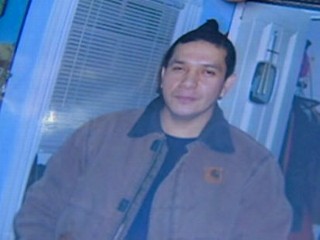
Hailing from Colombia,
the Aterciopelados are one of Latin America’s most well-known rock groups. Since the early 90s, the duo of Andrea Echeverri and Héctor Buitrago has created a unique blend of rock and social awareness
which NPR compared to “The Police and Talking Heads.”
Last month Aterciopelados released their latest album entitled “Rio”, an effort whose titular song (
MP3 sample) emphasizes environmental preservation.
Recently we were privileged to interview Buitrago via e-mail where he discussed music, fatherhood, and politics.
-------------------
The Latin Americanist: First and foremost congratulations for the recent birth of your second child! How has fatherhood been treating you lately?Héctor Buitrago: Thank you! It's really something that you can only experiment and interiorize when you experience it. You feel many emotions, some new, a different kind of love – more intense, also happiness. You also have to work on your patience, your imagination…
TLA: What are your feelings about "Río" and how does it compare to the group's previous albums?HB: For us, 'Rio' means a new beginning. We felt that OYE from 2006 was more of a transitional album because of our extended break to release two solo albums before that. In this new album we combine what we learned from those CDs and the space they created and we head towards new terrains both in sound and concept. We also feel it's more compromising and activating. The album has already inspired political and social action.
TLA: Andrea and you are part of the Referendo por el Agua ("Water Referendum") campaign. Why is the environment so important to you both?HB: Yes, the support for water is one of these movements. This is such a complicated time for the environment with serious threats such as global warming and the danger of water shortage. So it's time to act with a more focused effort. Each and every one of us should do it. It's not a distant threat from time or space; it's something that's happening right now. We have been supporting this referendum campaign for a year now and it has been very gratifying to see how changes at a political level can be generated from the actions of citizens. The environmental organizations were able to collect more than two million signatures! This has allowed the project to be debated in the Senate and it is awaiting approval. Some of the new articles would say that there will have to be a minimum gratuity for Colombians, that water will be declared a fundamental right not to be privatized and that the government will takes care and conserve its ecosystems.
TLA: The group's music tends to have a political slant. What are your views on Colombia's political situation and the Uribe administration?HB: It is just a really difficult moment for our country. There are so many issues. Right now, we're experiencing massive indigenous marches throughout Colombia that ask for the treaties to be respected in places where their lands were guaranteed due to the murder of their leaders. At the same time, workers in many sectors are unemployed. The thousands of Colombians that were displaced due to the guerrilla conflict, the army/paramilitary and the networks of corrupt politicians under President Uribe are difficult subjects that need to be resolved too.
TLA: Lastly, a philosophical question: what do you feel is the meaning of life?
HB: Ummm… it can be an experiment for each and every one of us to live a series of experiences that enrich the great mystery that is this existence... that we continue to advance and grow from our mistakes and constantly learn how to be better human beings.
--------------------
Many thanks to Hector for taking the time to answer our questions as well as
Nacional Records for helping set up the interview!
Image- Nacional Records
Sources- nacionalrecords.com, aterciopelados.com, The Latin Americanist, NPR, YouSendIt
 Aviation authorities have analyzed the causes of a pair of high-profile airplane crashes in Mexico and Brazil.
Aviation authorities have analyzed the causes of a pair of high-profile airplane crashes in Mexico and Brazil.
























